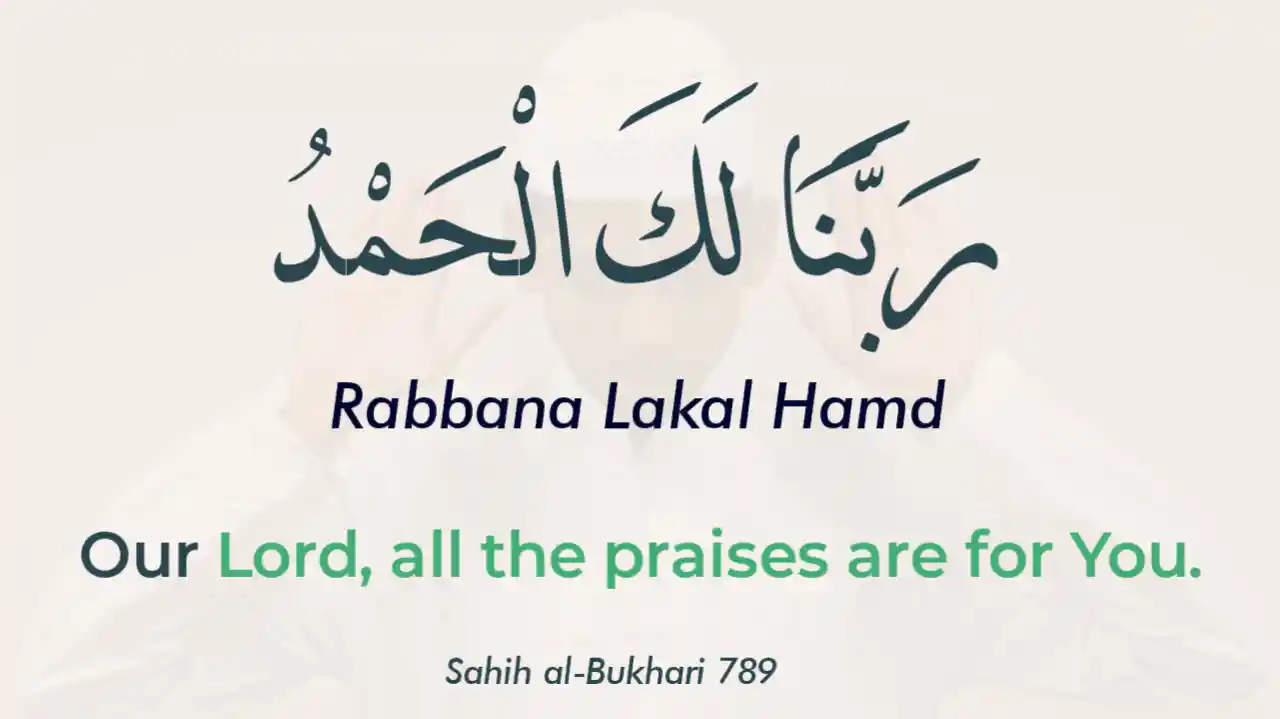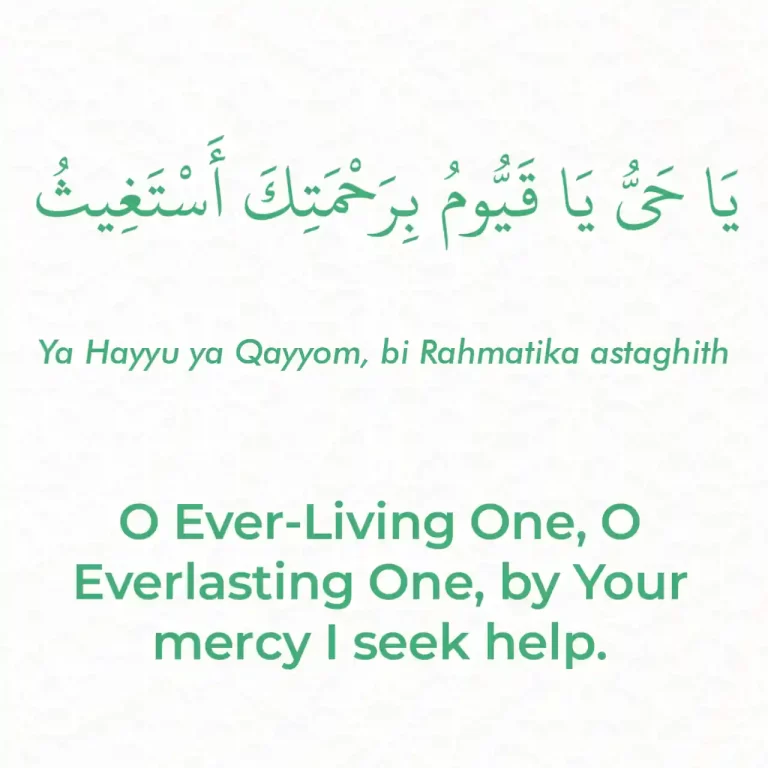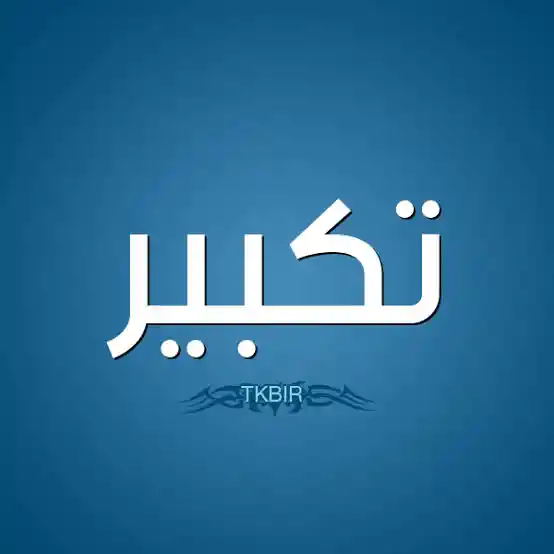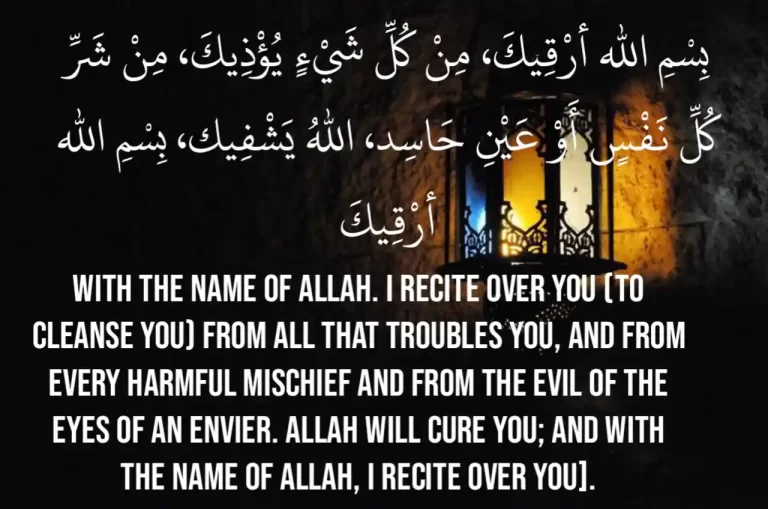Rabbana Lakal Hamd In Arabic, Hadith, and Meaning in English
Advertisements
In this blog post, we will learn the meaning of Rabbana lakal hamd in English, the correct pronunciation as well as how to it is written in Arabic text. Rabbana wa lakal hamd among the invocations for rising from the Ruku.
Rabbana Lakal Hamd In Arabic
رَبَّنَا لَكَ الْحَمْدُ
Rabbana Lakal Hamd Meaning In English
The meaning of Rabbanaa Lakal Hamd is Our Lord, all the praises are for You.
Is it Rabbana lakal hamd or Rabbana wa lakal hamd?
All of them are correct and reported from authentic Hadith. There are more than three versions of this Dua and the prophet SAW used to recite them all at different times. The variations are:
- رَبَّنَا وَلَكَ الْحَمْدُ
- Transliteration: Rabbana wa lakal hamd
- Meaning: Our Lord, and all the praises are for You.
- Source: Sahih al-Bukhari 738
- اللَّهُمَّ رَبَّنَا لَكَ الْحَمْدُ
- Transliteration: Allahumma Rabbana lakal hamd
- Meaning: O Allah, our Lord, all the praises are for You.
- Source: Sahih Muslim 415
- اللَّهُمَّ رَبَّنَا وَلَكَ الْحَمْدُ
- Transliteration: Allahumma Rabbana wa lakal hamd
- Meaning: O Allah, our Lord, and all the praises are for You.
- Source: Sahih al-Bukhari 795
Rabbana Wa Lakal Hamd Full Dua
The full Dua of Rabbana wa lakal hamd is:
Advertisements
رَبَّنَا وَلَكَ الْحَمْدُ، حَمْداً كَثيراً طَيِّباً مُبارَكاً فِيهِ
Transliteration: Rabbanaa wa lakal-hamd, hamdan i katheeran tayyiban mubaarakanfeeh.
Meaning: Our Lord, praise is Yours, abundant, good and blessed praise.
The longer version is:
رَبَّنَا وَلَكَ الْحَمْدُ، مِلْءَ السَّمَوَاتِ وَمِلْءَ الأَرْضِ، وَمَا بَيْنَهُمَا، وَمِلْءَ مَا شِئْتَ مِنْ شَيءٍ بَعْدُ. أَهلَ الثَّناءِ وَالْمَجْدِ، أَحَقُّ مَا قَالَ الْعَبْدُ، وَكُلُّنَا لَكَ عَبْدٌ. اللَّهُمَّ لاَ مَانِعَ لِمَا أَعْطَيْتَ، وَلاَ مُعْطِيَ لِمَا مَنَعْتَ، وَلاَ يَنْفَعُ ذَا الجَدِّ مِنْكَ الجَدُّ
Advertisements
Transliteration
Mil’as-samaawaati wa mU’al-‘ardhi wa maa baynahumaa, wa mil’a maa shi’ta min shay ‘in ba’d. ‘Ahlath-thanaa’i walmajdi, ‘ahaqqu maa qaalal-‘abdu, wa kullunaa laka ‘abdun. Allaahumma laa maani’a limaa ‘a’tayta, wa laa mu’tiya limaa mana’ta, wa laa yanfa’uthal-jaddi minkal-jadd.
Meaning
(A praise that) fills the heavens and the earth and what lies between them, and whatever else You please. (You Allah) are most worthy of praise and majesty , and what the slave has said – we are all Your slaves.
O Allah , there is none who can withhold what You give, and none may give what You have withheld . And the might of the mighty person cannot benefit him against You.
Rabbana Wa Lakal-hamd Hadith
There are many hadiths which talk about this Dua after ruku, one of them was reported in Sahih al-Bukhari Hadith number 738
Narrated Abdullah binUmar: I saw Allah’s Messenger (ﷺ) opening the prayer with the Takbir and raising his hands to the level of his shoulders at the time of saying the Takbir, and on saying the Takbir for bowing he did the same; and when he said,
“Sami`a l-lahu liman hamidah “, he did the same and then said, “Rabbana wa laka lhamd.” But he did not do the same on prostrating and on lifting the head from it.”
Sahih al-Bukhari 738
Tasmee’ (which means saying Sami’a Allaahu liman hamidah) when rising from bowing, and tahmeed (which means saying Rabbana laka’l-hamd) when standing up straight are Sunnah mustahabbah according to the majority of scholars, but the Hanbalis are of the view that they are obligatory, which is the correct view.
Shaykh Ibn ‘Uthaymeen (may Allaah have mercy on him) said in al-Sharh al-Mumti’ (3/433):
The evidence for that (i.e., that it is obligatory) is as follows:
(i) The Messenger (peace and blessings of Allaah be upon him) always did that, and he did not omit to say Sami’a Allaahu liman hamidah in any circumstances.
(ii) It is the sign for moving from bowing to standing.
(iii) The Prophet (peace and blessings of Allaah be upon him) said: “When he says Sami’a Allaahu liman hamidah, then say Rabbana wa laka’l-hamd.” End quote.
Advertisements








2 Comments